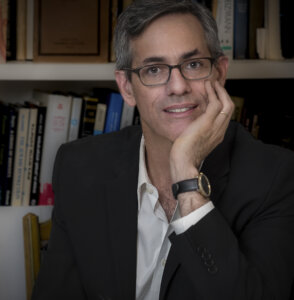Vaccine hesitancy is not a uniquely Haredi problem
The first case of polio in years was recently revealed to be an Orthodox Jewish man, leading some to blame the community at large

The new polio case comes amid fierce backlash against vaccination in some Orthodox communities fueled by the COVID-19 pandemic. Photo by iStock
Wave after wave of COVID-19 variants, the new monkeypox virus and now the first reported case of polio in the United States in a decade fortify the sense that we live in a dystopian world of unrelenting epidemiological threat.
The fact that the new polio victim is a young Orthodox man from Rockland County brings the perception of threat even closer to us in the Jewish community. And it raises the recurrent question of Orthodox compliance with public health guidelines on vaccinations, an issue that came to widespread public attention when Haredi Jews here and in Israel protested what they saw as heavy-handed government intervention in their lives, including the call to get vaccinated.
On the basis of just one case, it would be risky to hazard any kind of conclusion about the outbreak of polio and Orthodox Jews. What we do know is that Rockland County, which has a large population of Orthodox Jews, has the lowest rate of early childhood vaccination in New York State at 42%.
New York State mandates that children from day care to grade 12 “must receive all required doses of vaccines on the recommended schedule in order to attend or remain in school.” Compliance with that requirement is far from universal in Rockland as well as in Orange County, where the Satmar municipality of Kiryas Joel is located and which has a 46.6% rate of vaccination. But it is important to note that other counties in New York state that don’t have large Orthodox populations such as Chemung (44.2%) and Tioga (49.3%) also have relatively low rates of vaccination.
This reminds us that it is not just Orthodox — or particularly, Haredi — Jews who are vaccine-hesitant. Vaccine hesitancy belongs to a long tradition of anti-government libertarianism with deep roots in U.S. history.
Over the past 40 years or so, skeptics have resisted government regulations, triggered by a sensationalist 1982 documentary called “DPT: Vaccine Roulette,” which implied that children risked grave deformity and illness if they were vaccinated against diphtheria, pertussis and tetanus. Later in the 1990s, an article by Dr. Andrew Wakefield appeared in the British medical journal The Lancet that asserted a link between the mumps, measles, and rubella (MMR) vaccine and autism, among other effects; it was widely discredited and eventually retracted.
Since that time, the internet has served as an amplifier for claims of this sort and has led to rising numbers of requests for vaccine exemptions. Those seeking exemptions for both medical and religious reasons make up a curious coalition of opponents or skeptics including Christian Scientists, white conservative Evangelicals, crunchy, progressive parents in blue states, and Haredim, among others.
The measles outbreak in Haredi communities in 2013 and then again in 2018-19 highlighted the existence of a pronounced anti-vaccination constituency whose opposition resulted not from a lack of access. Rather, it was an ideological mix that rested both on faith in divine protection and a lack of faith in science and government that had been brewing for decades. Haredi anti-vaccination advocates at the time were a small and beleaguered minority, fiercely resisted by institutions and individuals that felt their actions were endangering the community as a whole. One might surmise that the young man sick with polio now was the product of a family that resisted vaccinations in the early 2000s.
It is important to recall this background when considering the impact of 2020 on the debate over vaccination. The outbreak of COVID-19 and the intensely polarizing figure of Donald Trump led to significantly greater skepticism about vaccinations and other public health measures such as lockdowns and quarantines. The genuine scientific uncertainty over the cause and course of the coronavirus — and the persistence of “alternative facts” driven by social media — led some Haredim, and especially the Hasidim among them, to become more visible, louder, and more defiant in protesting what they consider government overreach (and interference in their religious and communal lives).
In this regard, Haredi skeptics are quite similar to conservative Christians whose combination of divine faith and mistrust of government signals a potent new religious libertarianism that has left a deep imprint on the United States in the early 21st century. They are subject, as Nomi Stolzenberg and I argue in our book “American Shtetl,” to a process of “unwitting assimilation,” according to which they draw on social norms in mainstream American society while maintaining steadfast resistance to overt forms of acculturation.
The post-2020 version of this process has led to a new public face for Haredi Judaism. And yet, the roots of this kind of assimilation — as reflected in the presence of pockets of largely unvaccinated Haredi communities prior to COVID-19 — are deeper, as the current case of polio would seem to suggest.
To contact the author, email [email protected].






















